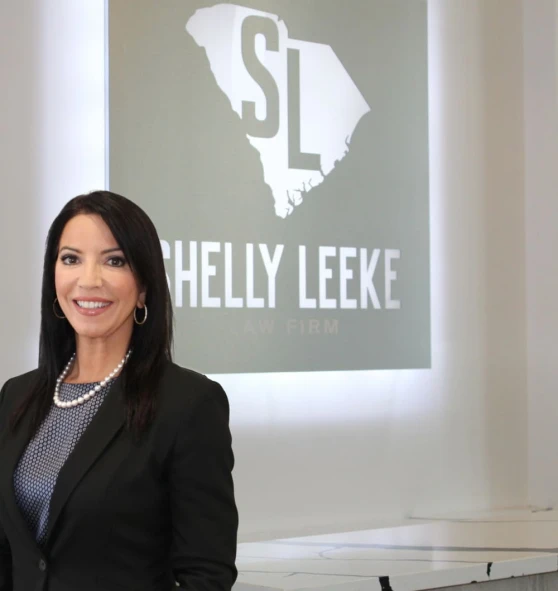
Being involved in a car accident can be a traumatic experience, and the aftermath can be confusing and overwhelming, especially when dealing with insurance companies and deductibles. One common question is whether you must pay your deductible if you were not at fault for the accident. A deductible is an amount you agree to pay out of pocket before your insurance coverage kicks in.
Do I Have to Pay My Deductible if I’m Not at Fault?
If you get into an accident and it’s not your fault, the other driver’s insurance company should pay for the damages, and you may not have to pay your deductible. It depends on your insurance policy. Some insurance policies require you to pay your deductible even if you are not at fault, while others do not. Reviewing your policy or speaking with your insurance agent to understand your coverage is important.

Getting Your Deductible Back
Yes, if you have to pay your deductible and you were not at fault, you may be able to get it back from the at-fault driver’s insurance company. This is called subrogation. Your insurance company will pursue the at-fault driver’s insurance company to recover the money paid for the damages, including your deductible.
The time it takes to get your deductible back can vary depending on the specific circumstances of your case. It may take several weeks or even months for the insurance companies to settle the claim and for your deductible to be reimbursed.
You may be able to sue the at-fault driver for your deductible if their insurance company refuses to pay. A lawyer can help you determine whether suing is viable for your case.
What Should I Do if My Insurance Company Requires Me to Pay My Deductible?
If your insurance company requires you to pay your deductible, you should pay it as required under your policy. However, you may be able to recover your deductible through subrogation or by suing the at-fault driver’s insurance company.
Besides your deductible, you may be responsible for other expenses related to the accident, such as medical bills, lost wages, and property damage.
Negotiating with your insurance company to waive your deductible is possible, but it is not common. Your insurance company may consider waiving your deductible if there are extenuating circumstances or if you have been a long-time customer with a good driving record.

Can I Still File a Claim if I Don’t Have Collision Coverage?
If you do not have collision coverage, you may still be able to file a claim for damages with the at-fault driver’s insurance company. However, you will not be able to recover your own damages through your insurance policy. If you have liability coverage, which is required, your insurance will only pay for the damage to the other vehicle.
Comprehensive coverage will cover your car if the damage did not come from a collision. Comprehensive coverage will pay for things like vandalism, theft, or damage caused by weather. You may be paying for repairs out of your pocket if you are the at-fault driver.

What if the At-Fault Driver’s Insurance Company Denies My Claim or Offers a Settlement Too Small to Cover My Deductible?
If the at-fault driver’s insurance company denies your claim or offers you an amount that does not cover your deductible, you should contact a car accident lawyer. Your attorney can negotiate with the insurance company about the damages you sustained and will work to come to a suitable resolution. If the at-fault party’s insurance company still does not offer a fair settlement, your South Carolina car accident attorney can help you pursue fair compensation at trial.
Can My Insurance Company Increase My Premiums if I File a Claim?
Your insurance company can increase your premiums. When you file a claim, you are signaling to your insurance company that you are a risk for them to insure. Drivers that the insurance company considers risky are charged more to insure.
Check your policy, if you have coverage for accident forgiveness, which is typically an add-on product, your insurance premiums may not change at all. So, by filing a claim, you may see higher premiums. For more minor accidents, like fender benders, your insurance premiums will not increase as much as they would if you filed a claim for a more serious car accident.
What if the At-Fault Driver Is Uninsured or Underinsured?
In South Carolina, auto insurance providers are required to offer you uninsured motorist coverage or underinsured motorist coverage. But, by law, you do not have to carry it in your vehicle. If you have this coverage and the at-fault driver was uninsured or underinsured, your insurance will cover the cost of damages.
Check your policy details to see if you have uninsured or underinsured motorist coverage when filing your claim.
What if I Don’t Have Insurance at the Time of the Accident?
If you do not have insurance during the accident and you were at fault, you may be responsible for all the damages, including your own. If the at-fault driver was not you, they will be responsible for your damages. Though, you may still face legal complications because it is illegal to have a car on the road that is uninsured.
Can I Recover My Deductible from the At-Fault Driver’s Insurance without a Police Report?
A police report is not always necessary. In South Carolina, you must report an accident in which injury or death occurred. It is a solid idea to call the police whether there were injuries or not. The police will document the details of the accident, making it easier to pursue compensation following the accident.
Without a police report, it can be difficult to prove fault and document the details of the accident. If you do not have a police report, you may need other evidence to support your claim. Your SC automobile accident lawyer will help you navigate this process.
What if a Driver Hit Me Under the Influence of Drugs or Alcohol?
In South Carolina, if you are hit by an impaired driver, you may be able to pursue a personal injury claim to compensate you for your damages. Be sure that you document any behavior the drunk driver exhibits. This could be through photographic or video evidence or eyewitness testimony.
In a personal injury suit, you may be able to recover damages for your medical costs, property damage, lost wages, and pain and suffering, among other things. Even if you are not badly injured, get checked out by a doctor since some injuries are not immediately evident.
If you are in an accident and are unsure of what your policy requires of you or what your next steps should be, it is best to hire a South Carolina automobile accident attorney to help you navigate the often complicated process. Contact Shelly Leeke Law Firm for help, our team will fight the best possible resolution of your accident claim.







